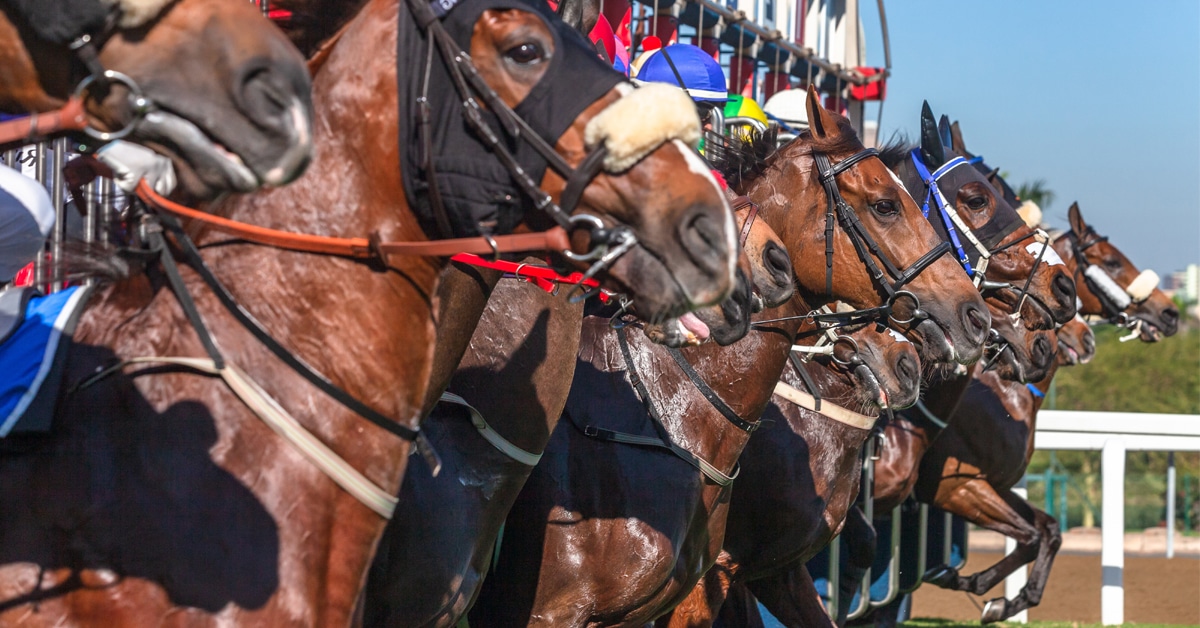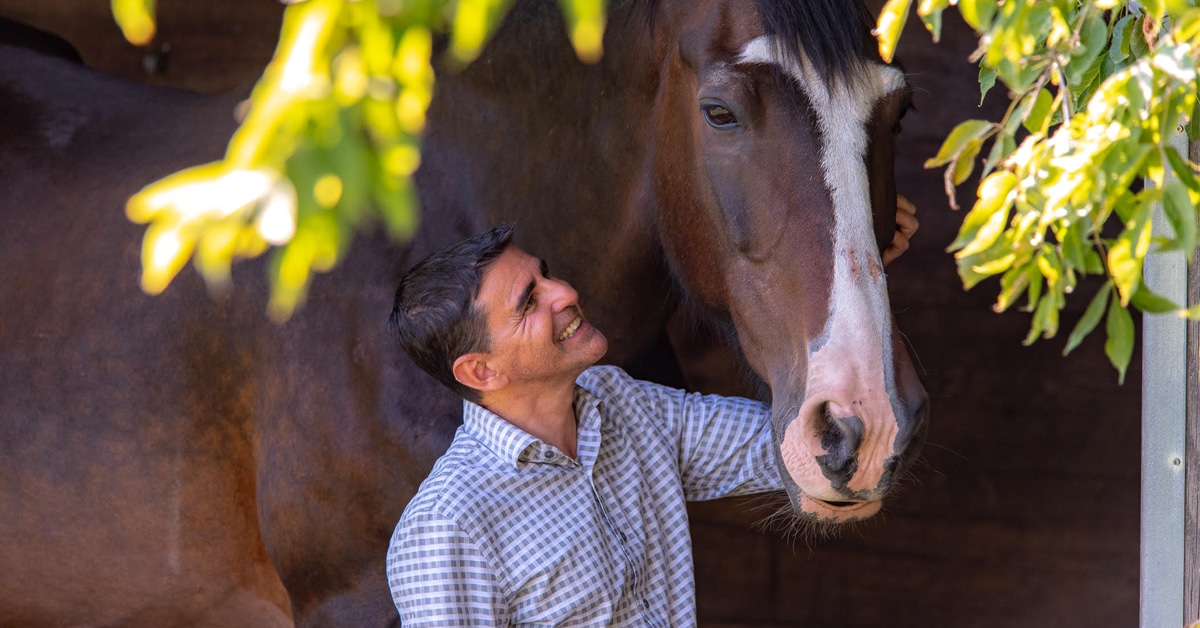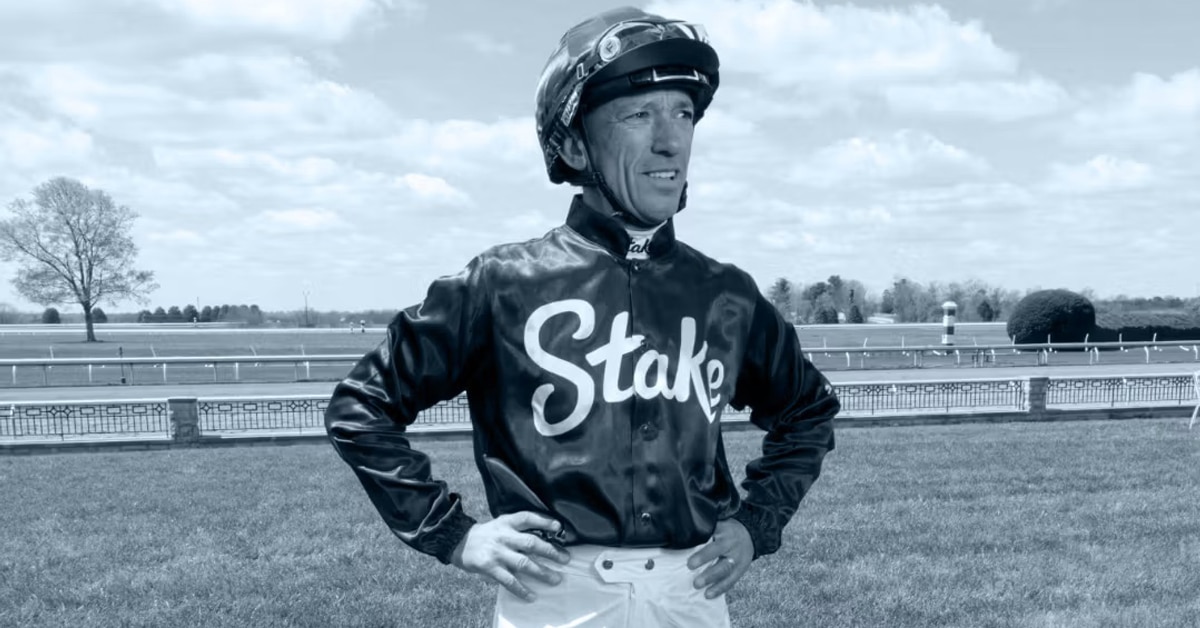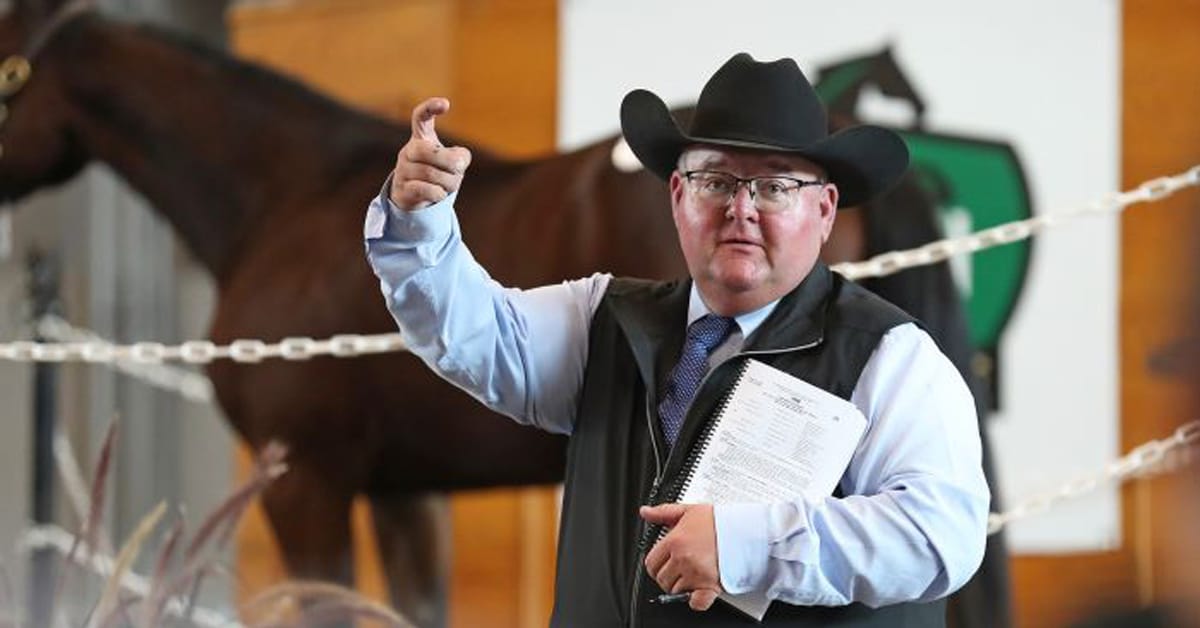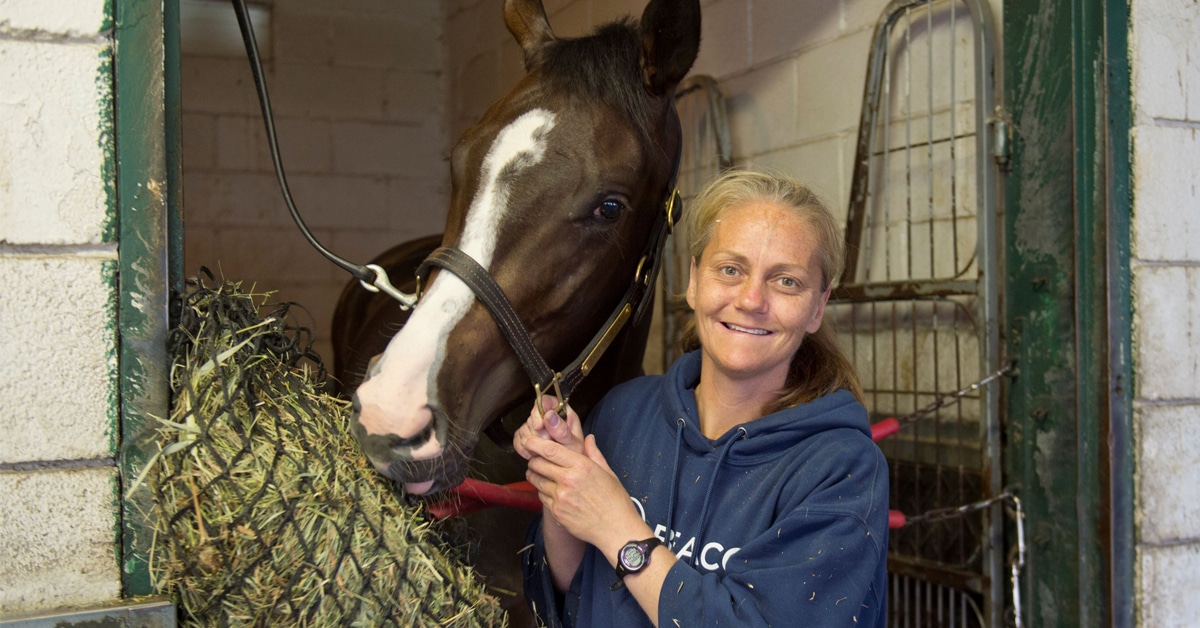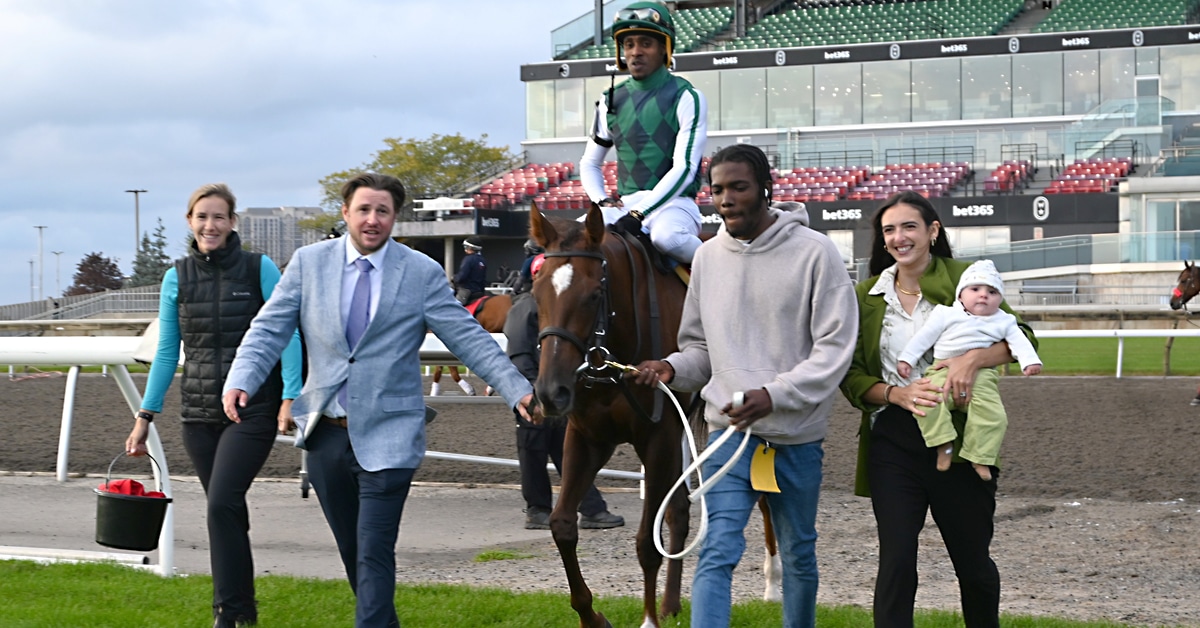Smitten early by a deep-seated affection of horses, there was no end to the lengths Ole Nielsen would go to bet the races at Edmonton’s Northlands Park. Even if it meant collecting empty bottles in ditches when he was 12 so that he could put together a $2 show parlay.
“Growing up in Edmonton I always loved horses. I would go to parades to watch Roy Rogers and Trigger. I’d go to rodeos and exhibitions. I joined a riding club when I was 12 where the odds were really good — eight guys and 100 girls.
“I was born in Denmark and my entire family were farmers. So maybe horses were in my genes.”
But when it came to horse racing, Nielsen, 74, was the only one in his family that was lured in that direction.
“My mom and dad weren’t interested. So I’d take the bus, go by myself with the money I made from picking bottles and try to make $6 or $7 on the day.”
It was a dark, dank and rainy day in 1965 when Nielsen, 20 years old at the time, really got hooked. That was the afternoon when he bet $100 to win on Chariot Chaser in the Canadian Derby and watched the Lloyd and Mary Wilson-owned dark, bay thoroughbred splash through the mud from 21 lengths back with Sandy Shields in the irons to run down Vancouver’s Weedbender.
Chariot Chaser paid $26.00 to win that day.
“I had more than enough money to buy a train ticket to Vancouver for a nice holiday trip,” said Nielsen.
That was also the day Nielsen started dreaming.
“From then on it was my boyhood dream to win the Canadian Derby,” Neilsen said.
“That Derby got me hooked.
“I’m an Edmonton boy. I was raised in Edmonton. I went to school at (Strathcona High). I went to the University of Alberta. I still feel very strong Edmonton connections even thought I ended up in Vancouver,” said Neilsen, who now owns Canmor Farms in Aldergrove, BC where he stands three stallions: Numaany, a son of eight-classic winner A.P. Indy, Ralis, who won the Grade 1 Hopeful at Saratoga and Texas Wildcatter, who ran second in a past Canadian Derby and five broodmares including $800,000 winner Monashee.
A WIN SIXTY-TWO YEARS IN THE MAKING
“When I started this journey that’s all I had in my mind. To win the Canadian Derby.”
On Aug. 18, at Edmonton’s new track Century Mile, that dream became a reality when his Explode finished second, by a neck, to Chicago-based, Godolphin-owned Journeyman in the $250,000 mile and a quarter race, but was moved up to first when the stewards disqualified Journeyman for interference.
“Winning it this way wasn’t quite the way I envisioned it. I feel bad for people who get their number taken down. Like trainer Jason Servis in the Kentucky Derby with Maximum Security.
“At first I thought we were going to win the race, that Explode was going to get by (Journeyman). I thought he had it. When he didn’t I thought to myself ‘bummer.’ Then I thought, ‘Oh well, second is second and it’s not the end of the world.’”
Then Nielsen watched the head-on stretch replay which showed Journeyman and jockey Dane Nelson drifting out and taking Explode to the middle of the track.
“When I saw the replay I thought ‘Hmm, this will be interesting.’”
“From my vantage point Explode was herded out quite a bit,” said Explode’s trainer Mark Cloutier. “They went from the three-path to the six-path. Or maybe farther.”
Nelson, however, was aghast — unable to fathom the steward’s decision.
“We were both bumping each other. (Explode’s jockey Amadeo Perez) bumped my horse and I bumped his horse,” said Nelson, who kept urging his horse down the stretch with his left arm. “That’s what happens when horses get that close together. One horses pushes and the other horse shoves him back.
“I can’t believe it.”
Perez and the stewards thought otherwise with Perez saying that the interference down the stretch cost him the race.
“It was enough to make him lose,” Perez said of Explode, who was winning for the fourth time in a row and sixth in his last seven starts.
The second favourite in what was arguably the best Canadian Derby field of all time, Explode paid a healthy $9.60 to win.
FOURTH DERBY
The Canadian Derby was the fourth Derby win for Nielsen, who won the BC Derby twice — with Decidedly D in 1972 and California Bucksaw in 1977 — and the Longacres Derby with Salad Sam in Seattle in 1976. Salad Sam would lose the BC Derby by a nose.
“I’m lucky to have done as well as I did,” said Nielsen, who bought his first horse in 1970, “between my first and second year at law school after a few too many beers.”
It was a yearling he named Winning Green “because I hoped he’d earn a lot of green stuff.” The horse never started.
BC DERBY
From Edmonton, Explode went to Vancouver for the mile and an eighth $250,000 B.C. Derby at Hastings Race Course on Sept. 7.
That race quickly turned into a match race with Glen Todd’s Five Star General and Explode knocking heads early and often.
Perez took Explode to the lead with Five Star General, ridden by Mario Gutierrez, exiting a win in the Sir Winston Churchill Derby Trial, hot and sizzling on Explode’s heels.
In a chess match, Perez then made the decision to let Five Star General, who had also won a stake in New York as a 2-year-old, go to the top, crossing the finish line for the first time. In what became a match race, Five Star General opened up two lengths but at the three-quarter pole his lead was shaved to half a length. At the top of the lane the margin was a head.
The farther they ran the closer they got.
Tension vibrated.
“Five Star General got a long neck in front,” said Nielsen. “But he just couldn’t go by.
“He didn’t even lose by a nose. It was more like a nostril. A dirty, rotten nostril.
“Explode got by him after the wire but unfortunately they pay for where they are on the wire.”
Like in the Canadian Derby it was a long way back to the third-place finisher Final Jeopardy, who had finished second to Travers winner Code of Honour.
“It was a great race, a helluva race,” said Cloutier. “Two nice horses running down the lane together.
“I’m really proud of my horse; he’s a champ.”
Cloutier was especially happy with the way Explode came out of the race.
“He was kicking feed tubs and water buckets. He wanted to go to the track the next morning. You’d think a horse would be flat after a race like that but no, he’s like an old racehorse. I guess he thinks he won.”
“I don’t want it to sound like sour grapes, but I wish I had the race to run over again,” said Nielsen. “In retrospect I would have liked to have seen Amadeo stay on the lead and not let Five Star General go past him like he did.
“The pace was really slow. They only went a half mile in 49 1/5 seconds. The other three stakes on the card all went about 10 lengths faster for half a mile. But Amadeo figured he could run him down in the stretch. That’s horse racing.
“It seems like Explode has become a friendly horse. He wants to be pals with another horse down the lane. He did that in Edmonton and he did that in Vancouver.”
Until those two Derbies, Explode had primarily raced from off the pace.
“He would blow past and win by four or five lengths. Now it seems like he likes to make it close,” said Nielsen, a retired land-development lawyer.
Indeed. In his races leading up to the Canadian Derby, Explode won the Ascot by 6 1/4 lengths, the River Rock Casino by 4 1/2 lengths and the Chris Loseth by 6 lengths.
All coming from off the pace.
How Nielsen obtained Explode is a story in itself.
FLUKE PURCHASE
“It was a fluke.
“We’re short of horses in Vancouver so a few B.C. owners decided to go to Keeneland to buy some weanlings and then put them into the BC Yearling Sale to increase the horse population. The BC Sale used to be restricted but they’ve since opened it up to non-BC breds.
“I bought six weanlings including Explode and put reserves on all of them.
“I bought Explode for $3,500 (U.S.) and put a $15,000 (Canadian) reserve on him. He’s a very beautiful horse.”
But Nielsen only sold one of the six. Fortunately Explode was one of the five he kept.
“I’ve hardly bought any colts for myself for a long time,” said Nielsen, who instead has focused on fillies and mares.
“Fillies are worth more than colts when their racing careers are over because you can always breed fillies and mares,” said Nielsen, who has won six BC Oaks with his fillies.
“Especially if they can win about $250,000.
“The boys are worth whatever they make racing; they aren’t worth a lot after their racing careers are over.
“And, I’m more interested in the breeding side of the business anyway.”
After what Explode has been able to accomplish, Nielsen said he may change his thoughts about colts.
“The BC Oaks and the Century Mile Oaks are both $100,000 races. The Canadian and BC Derbies are $250,000.
“That kind of money gets your attention.”
Explode’s next start is expected to be the BC Premier’s on Sept. 29 against older horses.
In what could be a classic rematch, Five Star General may be pointed there as well.
After that? Who knows.
“I’d like to hang onto him. It’s fun to have a good horse,” said Nielsen. “We’re not going to be around forever, so we may as well have some fun.
“But then my standard line when it comes to my horses is they aren’t for sale but make me an offer and I’ll consider it.”
The Latest

